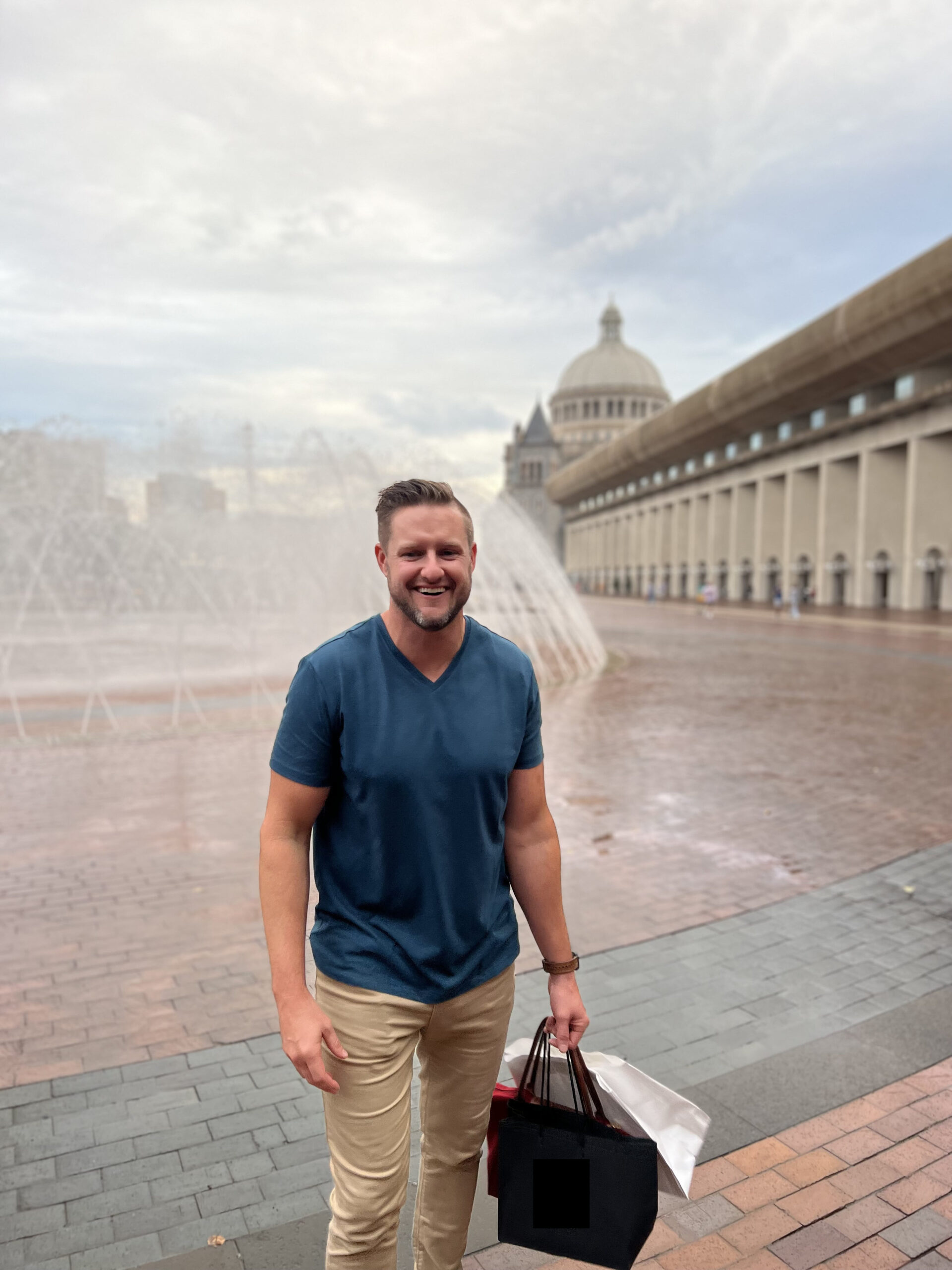In the realm of mental health and healing, the exploration of psychedelic substances has transitioned from countercultural curiosity to a serious scientific endeavor. Clinical trials focusing on psychedelics are uncovering potential treatments for a range of conditions, from depression to PTSD, marking a significant shift in how we approach mental wellness. If you’re seeking “psychedelic clinical trials near me,” you’re tapping into a revolutionary chapter in medical research. These studies not only promise new therapies but also challenge our understanding of consciousness and healing. As this field evolves, staying informed about nearby opportunities can be your gateway to participating in groundbreaking research that’s reshaping the future of psychiatry, including brain training, psychedelic experience, and MD-led studies.
Key Takeaways
- Psychedelic clinical trials offer a unique opportunity for individuals seeking alternative treatments for various mental health conditions; understanding the stages and purpose of these trials is crucial before participation.
- Before joining a trial, it’s essential to thoroughly research and consider the potential risks and benefits, aligning them with personal health goals.
- Participating in a psychedelic clinical trial requires careful navigation through databases and platforms that list ongoing studies, such as clinicaltrials.gov, to find a trial near you.
- Booking a consultation with a healthcare provider or the research team can provide valuable insights into what to expect and help determine eligibility for a specific trial.
- Staying informed about the latest research and post-approval insights can empower individuals to make informed decisions about their participation in psychedelic clinical trials.
- Leading the research in this field are institutions and organizations dedicated to understanding psychedelics’ therapeutic potential, offering a wealth of information for prospective trial participants.
Exploring Psychedelics
Psychedelics Under Study
Researchers are delving deep into the therapeutic potentials of psychedelics like LSD, psilocybin, and MDMA. These substances are being explored for their effectiveness against mental health conditions, including depression, PTSD, and anxiety disorders. The resurgence of interest in psychedelic research marks a significant shift from the past. Historically, the exploration of these compounds faced strict regulations. Today, however, a more open-minded scientific community is rediscovering their potential benefits in brain experience, psychiatry, and change.
Preclinical Studies
Nonhuman Toxicity
Before humans can safely participate in psychedelic trials, researchers must understand the compounds’ toxicity levels. They conduct nonhuman toxicity tests to assess both acute and chronic effects on the brain, under the direction of the psychiatry director at Mass General. These assessments are crucial for ensuring participant safety in later trial phases. Regulatory bodies require detailed documentation of these tests before approving human trials.
Dose Finding
Identifying the optimal dose is a critical step in psychedelic research. This process involves microdosing studies at Mass General to evaluate sub-perceptual doses’ effects on the brain. These studies help researchers find a balance between therapeutic benefits and minimal side effects. The insights gained from dose-finding studies are vital for designing effective clinical trials.
Clinical Trial Phases
Phase 1 Safety
Phase 1 trials primarily focus on safety and tolerability. Researchers administer psychedelics to a small group of healthy volunteers, focusing on brain effects, over a short period. The main goal is to identify any adverse effects and establish safe dosage limits. Successful completion of this phase allows progression to more extensive testing.
Phase 2 Efficacy
Moving from safety to efficacy, Phase 2 trials involve participants with specific mental health conditions. These trials use control groups and blinding techniques to rigorously test psychedelics’ therapeutic potential. Researchers measure outcomes like symptom reduction and improvements in quality of life to gauge success.
Joining a Trial
Finding Trials
Discovering ongoing psychedelic clinical trials can seem daunting at first. However, online databases and platforms have made this process much simpler. Websites like ClinicalTrials.gov offer comprehensive lists of trials across various stages of research. It’s crucial to use these resources to find studies that match your interest or condition.
Consulting with healthcare providers is another vital step. They can recommend suitable trials based on your medical history and current health status. Furthermore, patient advocacy groups play a significant role in spreading the word about psychedelic research opportunities. They often have access to the latest information and can guide you towards relevant studies.
Eligibility Criteria
Before diving into the application process, understanding the eligibility criteria for psychedelic trials is essential. Common requirements include specific age ranges, diagnoses, and treatment histories. These criteria ensure that participants are a good fit for the study’s objectives.
The rationale behind such detailed eligibility requirements often includes ensuring participants have a stable mental health condition. This is crucial to both the safety of the trial participants and the integrity of the study results. Always review these criteria carefully before applying to make sure you’re a suitable candidate.
Application Process
Applying for a psychedelic clinical trial involves several steps, starting with an initial inquiry about your chosen study. After expressing interest, you’ll likely be asked to provide detailed medical records and complete consent forms.
Documentation plays a key role in this process. It’s imperative to provide honest and complete disclosure of all health information. This ensures your safety during the trial and helps researchers determine if you’re an ideal fit for their study.
Understanding Trials
How Trials Work
Psychedelic clinical trials usually start with screening to find suitable participants. This process ensures that those enrolled meet all criteria necessary for the study. After screening, there’s a baseline assessment phase where participants’ current health and psychological state are documented.
The trial itself often spans several weeks or months. It includes doses of the psychedelic substance under study, alongside regular monitoring and assessments. Participants may receive either the psychedelic drug or a placebo as part of the trial’s design. This is where randomization comes into play, assigning participants to different groups by chance to eliminate bias.
Placebo controls are crucial for understanding if effects seen in participants are due to the drug or other factors. Throughout the trial, support and monitoring are constant. Professionals ensure participants’ safety and well-being, addressing any concerns that arise.
Participant Expectations
Joining a psychedelic clinical trial requires commitment. Participants should expect multiple sessions over the course of the study, along with time spent on assessments and follow-ups. The total time involved can vary but knowing this upfront helps set realistic expectations.
Experiencing psychedelic effects is possible during these trials. However, measures are in place to ensure safety and comfort for all involved. This might include having medical staff on hand during dosing sessions and providing therapeutic support.
Adhering to protocols is vital for the integrity of the trial results. Participants must report any side effects or concerns immediately. This cooperation not only contributes to their safety but also aids in gathering accurate data.
Trial Stages Explained
Safety Trials
Safety trials are the first step in understanding how psychedelic substances interact with humans. They focus on rigorous safety monitoring protocols. This includes tracking any adverse events that participants might experience. It’s crucial for ensuring that these trials do no harm.
The clinical team overseeing these trials comes with specialized qualifications and training. Their expertise guarantees the highest standards of participant safety. They monitor every aspect of the trial, adjusting protocols as needed to protect participants.
A key component in maintaining safety is the Data Safety Monitoring Board (DSMB). This independent group reviews safety data regularly. They make recommendations based on their findings to ensure ongoing participant protection.
Efficacy Trials
After establishing safety, efficacy trials come next. They measure the therapeutic benefits of psychedelics, focusing on outcomes like symptom reduction. These trials use precise statistical methods to analyze data. This helps determine the significance of results.
Efficacy trials play a pivotal role in moving psychedelics towards therapeutic use. They provide clear evidence of benefits, supporting approval by regulatory bodies. Without these trials, promising treatments could not advance to public availability.
Pivotal Trials
Pivotal trials represent a critical phase in psychedelic research. They are large-scale studies essential for regulatory approval. Compared to earlier phases, they feature increased complexity and stringent requirements.
These trials aim to replicate positive results from Phase 2 in a larger, more diverse population. Success here means a treatment is effective across various demographics, not just a small group.
Pivotal trials are where theory meets reality on a grand scale. They confirm whether treatments discovered in earlier phases will stand up under rigorous examination.
Post-Approval Insights
Safety Surveillance
After a psychedelic receives approval for therapeutic use, safety surveillance becomes crucial. This process ensures that any adverse effects are quickly identified and managed. Agencies like the FDA in the United States require manufacturers to report post-marketing adverse events. This helps in understanding the drug’s impact in real-world settings, beyond clinical trials.
Healthcare providers also play a key role. They report any unexpected side effects observed in patients. This collective effort aids in maintaining the long-term safety of psychedelic therapies. It reassures patients and healthcare professionals about the safety profile of these treatments.
Long-term Effectiveness
Understanding how psychedelic therapies maintain symptom relief over time is vital. Studies focus on their long-term effectiveness to ensure they continue improving patients’ quality of life. Researchers conduct ongoing and planned studies to gauge the durability of therapeutic effects.
These investigations face challenges, such as designing studies that accurately measure long-term outcomes. Factors like patient follow-up and the variability of psychedelic experiences complicate this task. Yet, these efforts are essential for validating the sustained benefits of psychedelics in treating conditions like depression and PTSD.
Leading the Research
Drug Development Leaders
Several pharmaceutical companies and biotech firms are at the forefront of developing psychedelic therapies. These organizations have made significant strides in recent years, pushing the boundaries of what’s possible in mental health treatment. Among them, names like Compass Pathways and MAPS (Multidisciplinary Association for Psychedelic Studies) stand out. Compass Pathways has been pivotal in advancing psilocybin therapy for treatment-resistant depression, receiving Breakthrough Therapy designation from the FDA.
MAPS has focused on MDMA-assisted psychotherapy for PTSD, with Phase 3 trials showing promising results. These milestones are not just marks of progress but also signs of a growing acceptance of psychedelics within mainstream medicine.
The collaboration between industry leaders and academic institutions is crucial. It bridges practical drug development with theoretical research, ensuring that advancements in psychedelic medicine are both scientifically sound and accessible to those in need.
Academic Research Centers
Institutions like Johns Hopkins University and Imperial College London lead the academic exploration into psychedelics. Their work has been instrumental in unveiling how substances like LSD, MDMA, and psilocybin can be used therapeutically. Johns Hopkins was among the first to establish a dedicated psychedelics research center, focusing on how these compounds affect the brain and consciousness.
Imperial College’s Psychedelic Research Group has similarly made waves by mapping the effects of psychedelics on brain activity. Their findings have provided invaluable insights into the therapeutic mechanisms of action behind these substances.
The contributions from these centers underscore the importance of interdisciplinary collaboration. By combining psychology, neuroscience, pharmacology, and other fields, researchers can fully understand psychedelics’ potential benefits and risks. This comprehensive approach is vital for moving beyond stigma and towards evidence-based applications.
Participating in Trials
Benefits of Participation
Participating in psychedelic clinical trials offers a unique opportunity for healthy volunteers. They can access cutting-edge treatments before they are widely available. This is especially meaningful for those who have not found relief through traditional methods. Participants contribute significantly to the advancement of scientific knowledge on psychedelics and mental health.
They also receive comprehensive care and support throughout the trial process. This includes close monitoring by medical professionals and access to assisted therapy sessions. For many, this level of support is unparalleled compared to standard care options.
The potential to experience significant improvements in mental health conditions stands out as a compelling benefit. Reports from previous trials indicate that participants often see remarkable changes in their well-being. These improvements can be life-changing, offering hope where other treatments have failed.
Potential Risks
However, volunteering for psychedelic trials comes with its share of risks and side effects. Participants might experience psychological distress or adverse reactions to the substances used in these studies. The intensity and nature of these experiences can vary widely among individuals.
To manage these risks, rigorous measures are in place within the trial framework. Screening processes ensure that only suitable candidates participate, reducing the likelihood of severe adverse reactions. Throughout the trial, medical professionals closely monitor participants’ responses to the treatment, ready to intervene if necessary.
It is crucial for volunteers to carefully consider these potential risks against the benefits. Making an informed decision requires understanding both the positive outcomes and the challenges that may arise during participation.
Database Navigation
Using Databases
Navigating online databases to find psychedelic clinical trials requires knowing where to look and how to search effectively. ClinicalTrials.gov stands out as a primary resource. It offers comprehensive data on ongoing and upcoming trials. Users can find detailed information about trial objectives, locations, and eligibility criteria.
To start, visit ClinicalTrials.gov and use the search bar. Type in keywords like “psychedelic,” “psilocybin,” or “LSD” depending on your interest. The site’s advanced search options allow for filtering by location, trial status, and participant age, among others. This makes locating relevant trials much simpler. Remember, refining your search with specific terms will yield more targeted results.
Trial Locations
Psychedelic clinical trials are not bound by geography but are influenced by various factors. They often take place in regions with supportive regulatory environments and robust research infrastructure. The United States leads in this field, hosting numerous studies across the country. However, countries in Europe and parts of South America also actively conduct these trials.
The selection of trial locations considers both urban and rural settings. This ensures a diverse range of participants can access these studies. Urban areas might offer more facilities and easier access for most participants. Rural locations are chosen for their unique demographics or specific environmental conditions that align with the study’s needs.
Booking a Consultation
Project Circle Services
Project Circle stands as a beacon for those seeking to participate in psychedelic clinical trials. It’s not just about finding a trial; it’s about finding the right one. Personalized matching services take center stage, ensuring that individuals are paired with trials that align with their health profiles and eligibility criteria. This approach dramatically increases the chances of a successful match.
Beyond mere matchmaking, Project Circle extends its hand further. They offer comprehensive support, guiding applicants through the often complex application process. From understanding the intricacies of each trial to preparing for the person screening visit, they ensure participants are well-informed and ready. This level of care is rare and invaluable, especially in fields as nuanced as psychedelic research.
Free Consultation Steps
The journey with Project Circle begins with a simple yet crucial step: filling out an online inquiry form. This initial action sets the stage for what comes next – a free consultation designed to dive deep into an individual’s needs and aspirations regarding trial participation.
During this initial consultation, experts from Project Circle engage in meaningful conversations to understand each person’s unique situation. They explore potential trial options that could serve not just as research opportunities but as pathways to personal insights or healing. The significance of this consultation cannot be overstated; it’s where possibilities begin to take shape.
After this pivotal meeting, support doesn’t end. Project Circle remains by your side, offering follow-up assistance with trial applications and preparation steps. They understand that questions may arise or circumstances may change, so their commitment to assisting participants is unwavering throughout the entire process.
Closing Thoughts
Diving into the world of psychedelic clinical trials opens up new horizons for understanding and potentially transforming mental health care. Your journey from exploring psychedelics to possibly participating in groundbreaking research has the power to contribute significantly to this evolving field. Each step, from joining a trial to navigating databases and booking consultations, equips you with the knowledge to make informed decisions about your involvement.
Remember, your participation doesn’t just benefit you; it propels the entire research community forward, paving the way for new treatments and insights. So, if you’re ready to take part in something bigger than yourself and explore the potential of psychedelics in clinical settings, reach out today. Start your journey towards contributing to a brighter future in mental health care. Let’s make history together.
Frequently Asked Questions
How can I find psychedelic clinical trials near me?
Use a reputable database like ClinicalTrials.gov to search for ongoing psychedelic studies. Filter your search by location to find trials close to you.
What should I know before joining a psychedelic trial?
Understand the trial’s purpose, its stage, and any potential risks or benefits. Ensure you meet the eligibility criteria before applying.
Can anyone participate in a psychedelic clinical trial?
Not everyone qualifies. Trials have specific inclusion and exclusion criteria based on factors like age, health condition, and medical history.
What are the stages of a psychedelic clinical trial?
Clinical trials progress through several phases, from early safety assessments (Phase 1) to larger efficacy tests (Phase 2 and 3), before seeking regulatory approval.
How do I sign up for a psychedelic clinical trial?
First, identify a suitable trial using databases like ClinicalTrials.gov. Then, contact the research team directly for information on how to apply or enroll.
What happens after a psychedelic drug is approved?
Post-approval studies may continue to monitor long-term effects and effectiveness in broader populations. These insights help refine treatment protocols and ensure patient safety.
Who leads research in psychedelic clinical trials?
Research is typically conducted by universities, medical institutions, or pharmaceutical companies specializing in psychiatric or neurological disorders. They often collaborate with experts in psychopharmacology and mental health.




